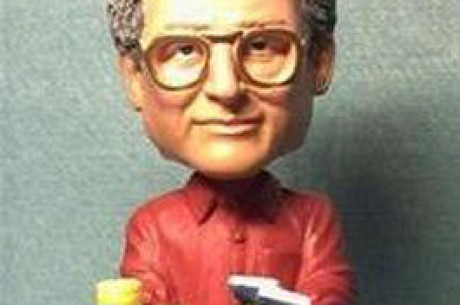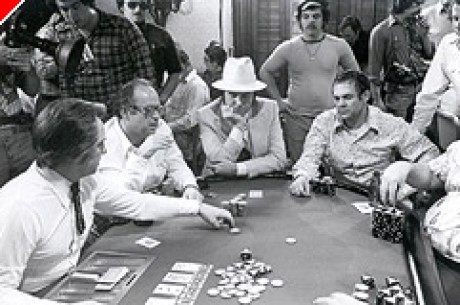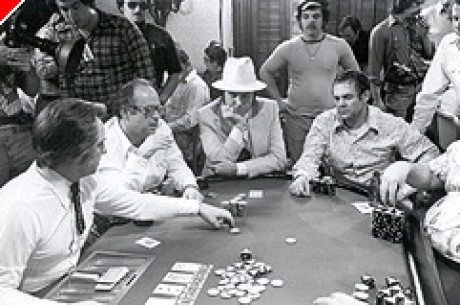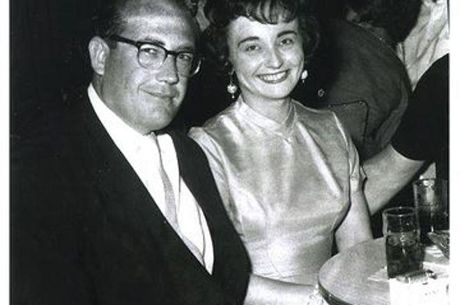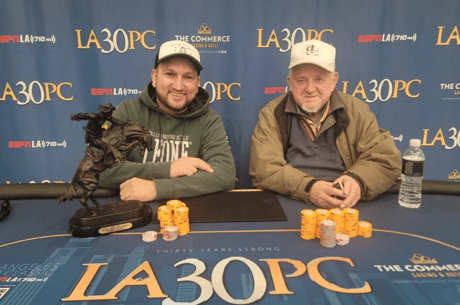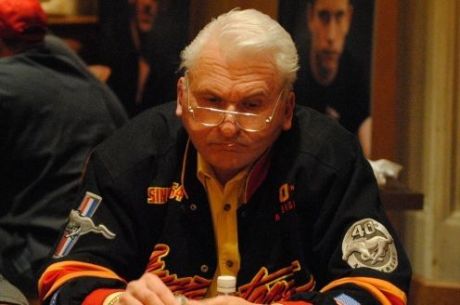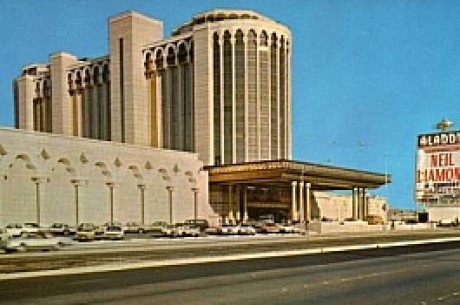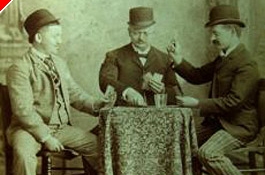A Quarter Century of Poker - Mickey Appleman
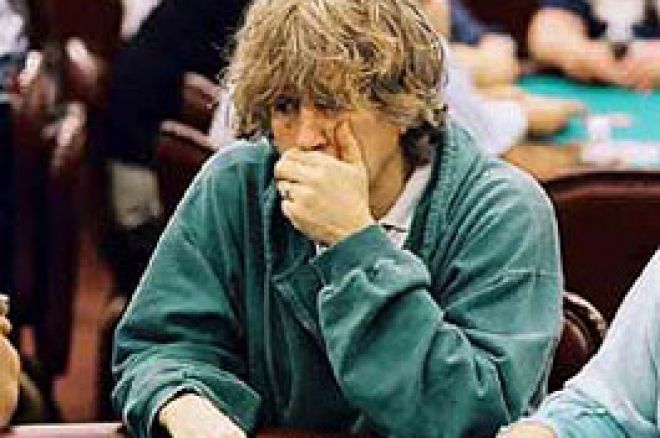
Well, the clock is still ticking; I just can't hear it any more. I've hit the quarter century-mark in my quest to master poker, but I'm not there yet. I've played under my bankroll, and over my bankroll. I've played over my head, won tournaments, and gone through streaks where I was certain the poker gods were punishing me for my life's transgressions.
During all the years, however, I've never lost my love for the game. Every day, every game, every player - is different. And likewise, every game and every player can be beaten, at one time or another. Nothing in life is truer
In 1980, I splurged and paid the $50 that Super System, by Doyle Brunson, sold for at the Gambler's Book Club in Las Vegas. Inside I found a wonderland of stories, knowledge, and possibility.
I started hanging out wherever the "name" players were, spending enough time watching to make myself a true railbird. The more I learned, the less I found I knew, and the worse I played. I kept myself afloat with blackjack and 7-stud winnings, and kept watching.
I saw Johnny Moss play well, and I watched as the wheels fell off when age finally caught up with the Master. I saw Stu Ungar play brilliantly in cash games; then disappear for hours at a time and come back
giddy/depressed/agitated/inattentive, and I watched as his mound of chips melted away like ice cream does out on the Las Vegas Strip in the heat of summer. Those were life's larger lessons, born-out in front of me. Age deteriorates play, and so does compulsion.
Competition however, brings out the best in poker players. And the best players thrive when games get tough. I have an unending admiration for players who come through tough times, fighting, clawing, and straining against whatever stands in their way. I also have a great admiration for players that have proven themselves over the years at more than one game. Mickey Appleman is one such player.
Appleman grew up in New York (Long Island), and received a degree from Rutgers. He took a job teaching statistics and enjoyed handicapping sports to pass the time. Eventually, he was placing bets so large his teaching salary was hardly a consideration. He stayed on top of the sports scene, and made a trip in 1975 to play in his first World Series of Poker. He didn't win.
It didn't matter. He had a good time, and continued playing poker in New York and Vegas for several years before he won his first event at the WSOP: the $1,000 buy-in 7-Stud hi-low split title. He spent most of his time handicapping sports, and it was six years before Mickey would cash again at the WSOP, but he did well in other tournaments, like the Super Bowl of Poker at Lake Tahoe.
The Super Bowl was held in December, and you could see the snow flying from inside the casino. The poker games however, were always hot. One day I was feeling pretty lucky, having just busted a $10/$20 stud game when my rolled-up eights turned into quads on sixth-street and I beat a set of aces, and another player's nines-full. All skill no doubt.
I took my rack of chips to a small no-limit game where my luck continued. When the game got short-handed, I had three racks of chips (about $3500) and was walking on a cloud. I went to the podium and asked if there was a $30/$60 stud game going. I was ready to move up!
A brush-person led me to the game, and as we approached, she said "Player coming in," to alert the dealer. She nodded towards the game while stopping at another table to take a player's cash, and turned towards the podium to change them to chips. I had my own chips, and stared at the game in front of me: Brunson, Tomko, Pearson, Appleman, and a player I didn't know. I was dizzy. I was excited. I was a klutz.
With my usual finesse, I swooped into the table and spilled my top rack of chips, but I was cool. I dumped the rest out and started stacking them up. Mickey, seated on my left, said "Hey, nice." I thought he meant all those chips I had. "Yeah," was my casual reply.
I also said "Yeah," when the dealer asked if I wanted to get in the next hand, and he snagged a chip from the mess in front of me for the ante and started dealing. Mickey was low, and brought it in. There was a flurry of chips, and it was $150 to me. "Wow, these guys like to gamble," I thought. My first three cards were a four- five- six, offsuit. - not much to work with. Of course, I called.
I tried to figure out what was going on after the next card, while stacking my chips, but somehow it was another $150, to me. I called. When Mickey started the action again on fifth-street, I had caught an eight, leaving me a gut-shot straight draw. I looked at the mound of chips in the middle of the table and though I should probably fold, but when the dealer said "It's $600 to you, sir," I realized something important: I was the player referred to as "a brick short of a load."
Somehow I had managed to sit down at a $150/$300 game. Guppy and sharks, and I was lunch. Confused and embarrassed, I said, "Oh, yeah, I call the raise," as though $600 was nothing to me (other than a month's rent, and groceries). The snow stopped flying, the clouds parted, a ray of sun appeared, and I proceeded to hit my gut-shot. I heard a snort, but can't say whether it came for Mickey, or Puggy. Maybe Doyle's soup was too hot. It probably wasn't my play. I sat there for another half-hour, paying the ante and folding, afraid to leave. If I left right away, somebody might realize I was in the wrong game! Of course every player at the table, including the dealer, knew I didn't belong there.
Just sitting still and not playing any more hands was great, considering the company. I listened to their stories, and looked forward to the day when I would be able to play those limits on a regular basis. Mostly I'm still waiting.
Doyle became a legend, so did Puggy. Tomko is a terrific player, and Mickey, well, Mickey may or may not be a legend because he is quiet and doesn't get much publicity. Just remember that since that day he has won another three WSOP gold bracelets.
The amazing thing about Appleman is that his WSOP wins have come in different forms of poker. He is a very cerebral player, and reminds me of Stu Ungar as he ponders the math behind his next move. He isn't usually the most aggressive player in the game, but believe me, he exhibits plenty of well-placed aggression when necessary.
Mickey followed his 7-stud split title with a deuce-to-seven draw title in 1992. Two years later he won the $5,000 buy-in limit hold'em title, and then took the $2,000 pot limit hold'em championship in 2003. He's versatile, he's a champion, and he's a nice guy. Even if you suck-out on his set and hit a gut-shot.
Ed Note: Poker Stars have our highest rated tournaments, find out why

